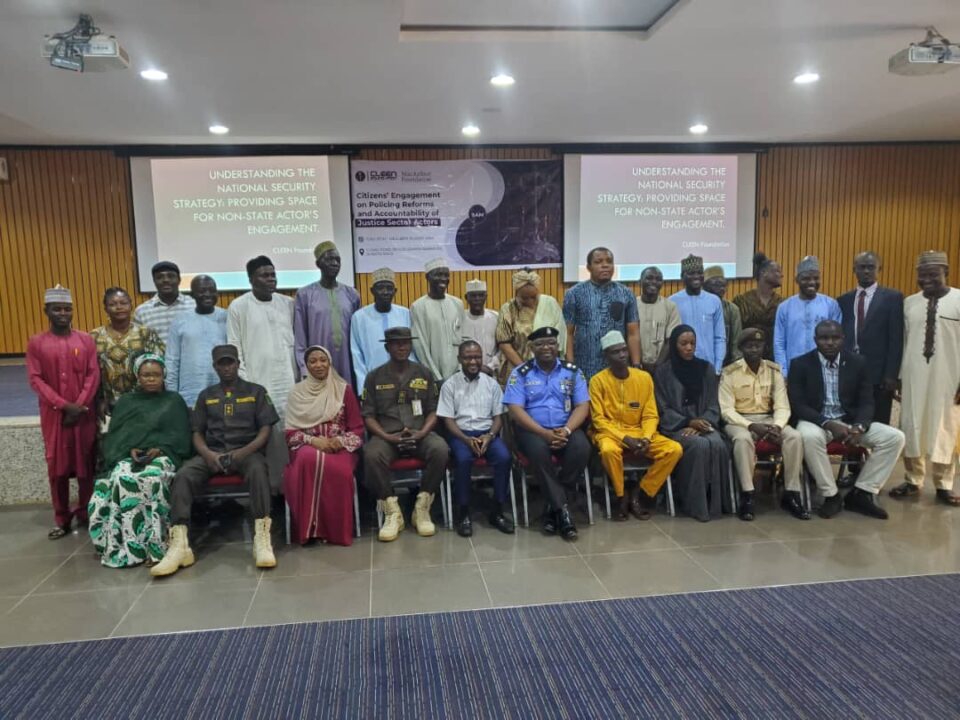Residents of Sokoto State have raised urgent demands for improvements in the justice and policing systems.
They cited ongoing challenges in the implementation of existing laws and reforms.
These concerns were revealed during the two-day Citizens’ Engagement on Police Reform and Accountability of Justice Sector Actors, organized by CLEEN Foundation and supported by the MacArthur Foundation.
The event, held at Alhujiat Royal Suit, provided a platform for Sokoto residents to voice their frustrations and offer suggestions for enhancing the effectiveness of the criminal justice system in the state.
The residents, through the Sokoto State Citizen’s Charter of Demand, outlined several key areas where they believe immediate action is necessary.
“Policing reforms in Nigeria have been described over time as motion without movement,” the charter states.
The charter reflects widespread dissatisfaction with the pace and effectiveness of reforms.
“Despite the enactment of critical legislation like the Administration of Criminal Justice Law, ACJL, the Anti-Torture Act, and the Police Act, implementation and compliance by state actors remain inadequate.
They specifically called for improvements in capacity building, funding, and professionalism within the Nigeria Police Force, Nigeria Security and Civil Defense Corps, and Nigeria Correctional Services.
They emphasized the need for better forensic investigation capabilities, transparent recruitment processes, and more frequent community and civil society engagement.
One of the key demands is for the Nigeria Police Force to implement critical aspects of the ACJL, such as the recording of statements via video and ensuring that magistrates regularly visit police divisions within their jurisdiction.
“Adequate funding and budgetary allocation are essential for these reforms to be effective,” the charter emphasized.
The Sokoto Citizen’s Charter of Demand also highlighted the need for the Nigeria Correctional Services to speed up the parole board process and fully implement non-custodial sentencing options, such as community service. This, they argue, would help reduce overcrowding in prisons and promote rehabilitation rather than mere punishment.
Dr. Gad Peter, Executive Director of CLEEN Foundation, reiterated the importance of these demands during his opening remarks at the workshop.
“The administration of justice is the cornerstone of any society that upholds the rule of law, and our collective efforts are pivotal in ensuring that it remains robust and effective,” he said.
Dr. Gabriel Akinremi who represented Dr. Peter commended the residents for their active participation and urged state and federal authorities to take the charter’s demands seriously.
“Your presence here today is a testament to your dedication to justice and your willingness to contribute to meaningful reforms,” he added.


